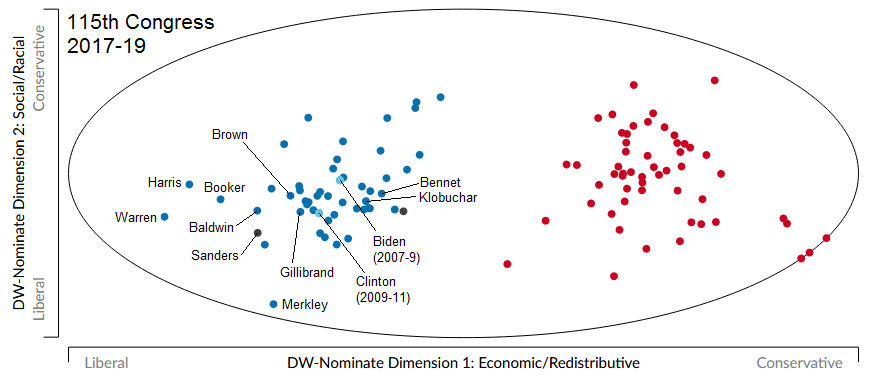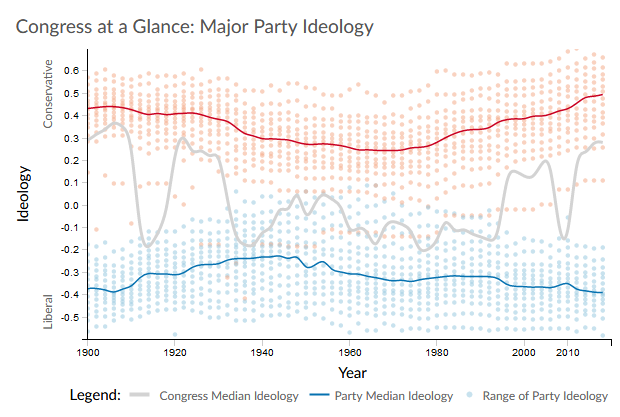When I recently read up on DW-NOMINATE, I learned a few things about certain political figures. DW-nominate gives every senator a score based on how left/right their voting behavior is, and sometimes the score does not match the senator’s public image.
In the 115th congress (2017-2019), the leftmost senator was… Elizabeth Warren. Not Bernie Sanders, where did you get that idea? After Elizabeth Warren, is Kamala Harris. Then we have another presidential hopeful, Cory Booker. And finally, we have Bernie Sanders–tied with Tammy Baldwin.
I made a plot! It’s copied directly from Voteview, with labels added for certain senators of interest.


